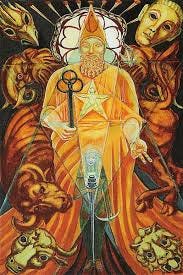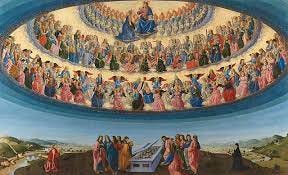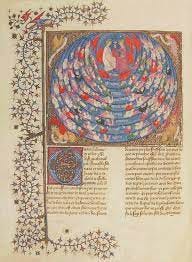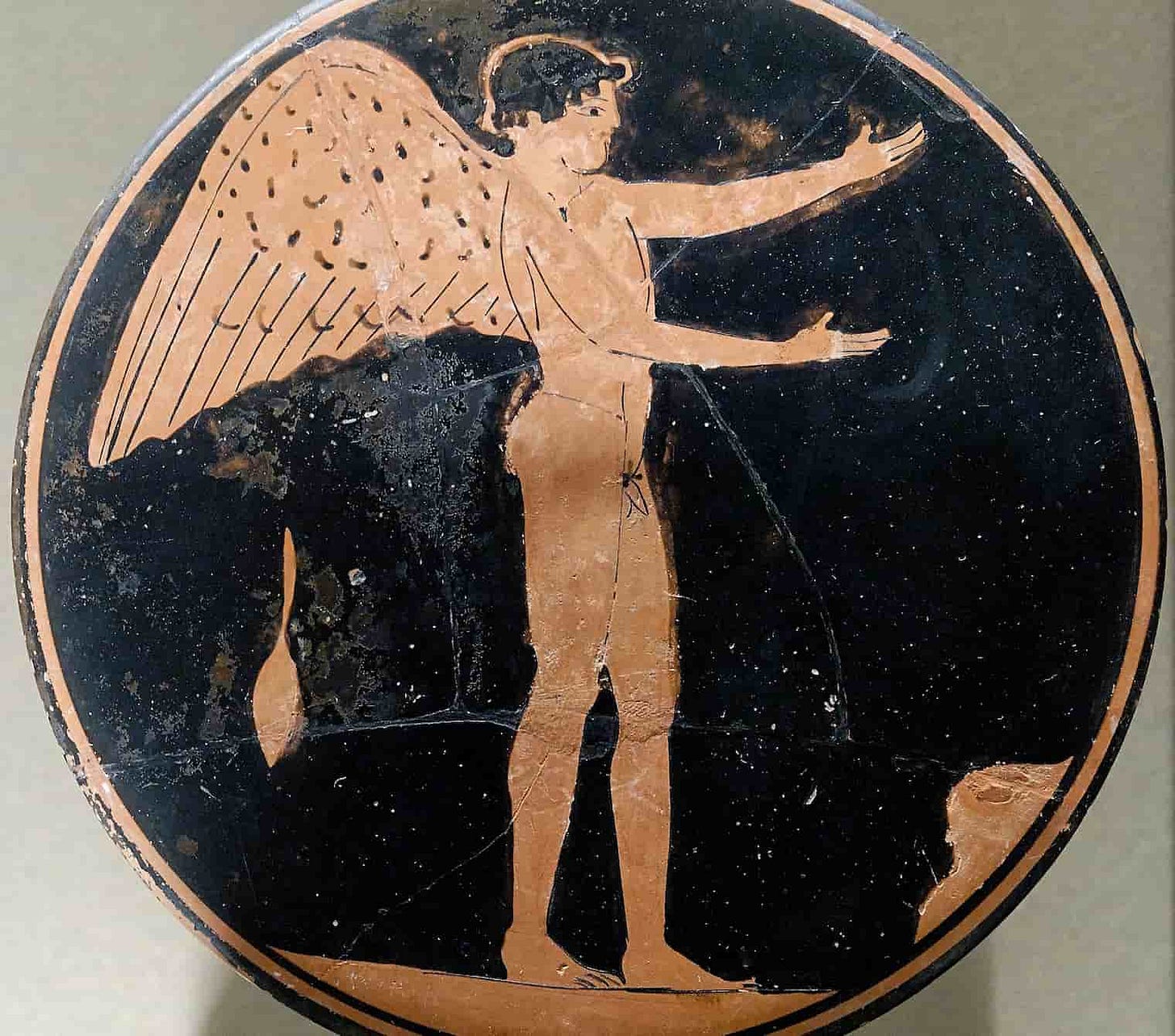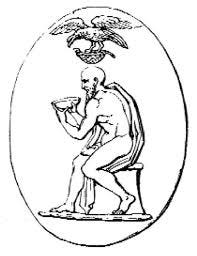Who or what is leading the human spirit?
The Tarot de Marseille gave us le Pape, or the Pope, but when the cards were reworked by the British mystery schools around 1900 the archetype was re-baptised the Hierophant. The culturally Protestant English shifted spiritual authority away from the Pope to something pre-Christian, and less easy to define.
It seems fair to say that for the majority of the West the term spiritual authority is coming to mean less and less, a concept that has meaning only historically. Who’s well placed to tell you what you should believe, what rituals you should perform, what journey your soul is on? My home country the UK has a head of church and state united in the sovereign, and the royal family still carry at least the power of fame, but the Church of England is undeniably a feeble institution. The congregations are declining in number, influence and strength. Who listens to the Archbishop of Canterbury? How many even know his name?
So why even talk about the Hierophant?
It matters because the archetype of spiritual leader can persist even in a non-spiritual age. Archetypes are not created or destroyed but only change form, like our concept of beauty or justice, they remain in our cultural DNA and take on other, sometimes unrecognised, forms.
I’m going to argue that the Hierophant has gone into shadow territory, in the sense that there is no overt spiritual authority and no clear set of rules followed by the community as a whole, yet large numbers of people hand over their spiritual power to others totally unconsciously. Trends like AITA, show that people are ready to turn themselves over to the ‘wisdom’ of the group to evaluate their own behaviour, to find out if they are good or bad because they are unable to judge their own behaviour, or even to decide what criteria to use. It’s a democratic, yet also disordered and disputed territory.
In the absence of a pope, archbishop or high priestess, we remain agonised at the possibility of doing the wrong thing and being judged by others, so may pre-emptively cast ourselves on the judgement of others. But why would others’ views be more important than our own sense of what is right? Who among us is best able to determine what is right? How can we know?
The Christian structure has broken down but without freeing the individual conscience, the need to be authorised and feel validated remains. Instead of asking the priest, we look to number, or the validation of the group, even sect, of people we have consciously or unconsciously endowed with moral authority… meanwhile there is an unoccupied space sitting within.
The Christian top down archetype of spiritual authority is reflected in the hierarchy of the church, and in the angelic realms. There is level upon subtle level above us leading to the most high, and the vertiginous architecture of the Gothic period acted as an earthly representation of the distance between your own insignificant soul on earth and the inaccessible glory of God above.
To talk to God you must follow the chain of command. Speak to the priest and he will intervene. Pray to the statue of the saint and the visual representation will relay your devotion to an antenna closer to Christ.
For the Greeks, a person travelled through life with his or her daimon, a higher self able to speak to and guide the mortal while on earth. An individual could explore the rules of life empirically. Thinkers like Plato or Marcus Aurelius, observed life around them and tried to understand what path natural law was bidding them to take. They trusted their own capacities for understanding, yet knew that they would always be exceeded by something greater. Plato considered that intuition was superior to reason in that it arrived directly at the heart of a truth without thought processes or deduction. Direct apprehension gave a whole understanding that could then be imperfectly formalised into a principle using language.
It’s not easy to develop and trust your individual connection with the divine, especially when the dominant culture is atheistic and the religious tradition you’re born into locates spiritual authority outside yourself.
The treacherous territory of the guru
Walking alone, or DIY spirituality is a difficult path. With the rise of witchcraft*, the new age and other pagan resurgences on social media there’s been an opening of the initiates’ spell book in a monetised format designed for short attention spans and to people who are often not psychically ready.
The ‘sin’ in tarot reading and divination could be the idea of robbing someone of their God-given freewill and taking illegitimate spiritual authority over them. The original word for witchcraft in Greek is the same as for medicine - Pharmaka. The same plant that can heal you could kill you at the wrong dose and the (witch)doctor bears the responsibility for that. When you start to look deeper into the patterning of the universe, your life is altered, you become less well integrated into ‘normal’ society, you receive boons but also know you could be wrong. You could harm.
When I lay out the 3 future cards in the 11 card Celtic Cross, I refer to these futures as timelines leading out of the present and future. The reading focuses on now and seeing the present from a symbolic angle, giving the person a new perspective that is impersonal but also empowering. The future arises from the present and can be altered only by changing the present, by taking hold of your own free will and enacting change according to your wishes, in the same way you get off a train when you realise the final destination isn’t where you want to go. The reason a reading might successfully predict the future is because someone may feel powerless to alter their own thoughts and behaviours, or to make the physical and material changes necessary to avert a problem later.
In my view a good tarot reading helps restore a person’s spiritual authority. It makes them aware of how they have already listened to their own intuition, which was calling on them to investigate and resolve some aspect of their life. They waken to the idea that they have to now take responsibility and act, or submit to a process they have been fighting in order to achieve their own spiritual authority. Like in medicine the goal should be that the person does not come back, or only rarely, because they have righted something and feel better. Both the reader and the querent are their own spiritual authority as they consult spirit in a symbolic process.
I know there are dangers in this path. Tarot readers and other pagans are goats not sheep. Horned and cloven hoofed? Partly, maybe, but also immune to herding, tough, independent, and arguably better adapted to the rough terrain of the present than those following consensus thought and mainstream messaging. When the self proclaimed spiritual leaders of our time are people who manifest money by telling people how to manifest money how are we supposed to orient ourselves?
In the culture wars and the shifting tides of intellectual and ideological fashions with murky PR games on every side it is harder and harder to know who to trust. This is one reason, among many, why people are returning to orthodox Christianity and looking for a hierophant pointing to a path lit with divine light.
Perhaps I will turn back to tradition one day but for now I am trying to get sure footed on the scree of contemporary culture with a deck of tarot cards in one hand and a copy of Plato’s Timaeus in the other and asking my daimon for help along the way.




